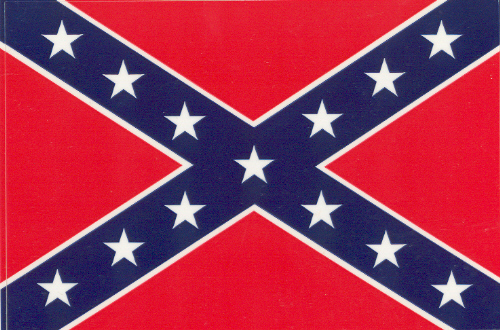
From my sister Lee:
In
1985, I went to see Doc Watson perform at Thalian Hall in Wilmington,
North Carolina. When summoned for his encore, he announced, “Now
I’m going to sing America’s second national anthem.” And he began
to play Dixie. The
audience went insanely wild, feet stomping, hysterical cheers. It
was thrilling. I was totally swept away.
And for years after, it continued to bother me. Why was it so
thrilling? What did it mean? I just couldn't figure it
out. The Civil War seemed to be so simple for Northerners, and
still so complicated for the rest of us. So I forgot about Doc
Watson and Dixie,
felt embarrassed by it, and rather guilty too, and chalked it up to
another mysterious, uncharted connection to my “country.” Then, last
summer, after leaving the Civil War battlefield of Chancellorsville with Lloyd, my mom and my two
kids, with my head full of ghosts, and a vision of Robert E. Lee
swinging his hat over his head, his eyes gleaming with victory, I asked
Lloyd if his miraculous i-pod contained within it the song Dixie, and if so, to play it. It did, and he did.
Since then, I have located Bob Dylan’s version of Dixie.
And I play it a lot. But I’m careful to close all of my windows,
so that no one can hear it. My neighbors are
African-American. I like them, and I’m worried they will think it
is racist to listen to this song. I pause it when the mail man is
close to the house. It’s like a dirty secret. And this
gnaws at me.
So I did some research into the history of the song Dixie,
and, like the song itself, I found it both comforting and
disturbing. The authorship is generally attributed to Daniel
Decatur Emmett, of Turkey in the Straw
fame, an Ohioan who allegedly wrote the song in 1859 while living in New
York City. A competing account tells us that the song was really
an old African-American tune revived by the black musician brothers Ben
and Lou Snowden, whose joint tombstone proudly declares “They taught Dixie to Dan Emmett.” Either way, the song was a smash hit, particularly in the North.
When Abraham Lincoln first heard the song in Chicago, he shouted “Let’s
have it again! Let’s have it again!” By all accounts, it
remained one of his favorite songs, before, during, and after the Civil
War. “I just feel like marching, always, when that tune is
played,” he said. When the war was over, he made a special point
of requesting it at public events. “That tune is now Federal
property and it is good to show the rebels that, with us in power, they
will be free to hear it again…I insisted yesterday that we fairly
captured it..and that it is our lawful prize.”
It is unconscionable that almost a hundred years later, psycho white supremacists used the song as a sparring partner for We Shall Overcome
during the Civil Rights Movement, associating it (really, I
believe, for the first time) with institutionalized racism. It
was a despicable and cowardly answer to Lincoln’s generosity. But
if “possible use by psychos” is a litmus test for a thing’s viability,
then we shall have to throw out a good many things, the Christian
church and our own government for starters.
In my research, I stumbled on this quote from Howard Sacks, and despite
the fact that he is an academic, I quite liked it. He says, “What
[Dixie]
tells us is that black, white, male, female, southern, northern, slave,
free, urban, rural–these aren’t separate realms. The story of
the American experience is the story of the movement between these
realms.”
Which, naturally, brings Elvis Presley to mind. Clearly, it was
no accident that Lloyd’s astoundingly brilliant Navigator preceded our
tour of Chancellorsville with a visit to Graceland. Elvis sang Dixie,
and if there was ever any American who was not a racist, it was
Elvis. His heart and his instincts on that score were pretty near
perfect.
So here’s what I’m wondering: If Abraham Lincoln claimed Dixie
as his prize of war, why can’t we reclaim it as a prize for our
heartbreak? Heartbreak that we ever tolerated slavery in our
country for even a nanosecond, heartbreak that we ever took up
arms against each other and heartbreak that all too often we let
Lincoln down. I don’t see why we can’t do that.
Dylan's version of Dixie can be found on the Masked and Anonymous soundtrack album.
